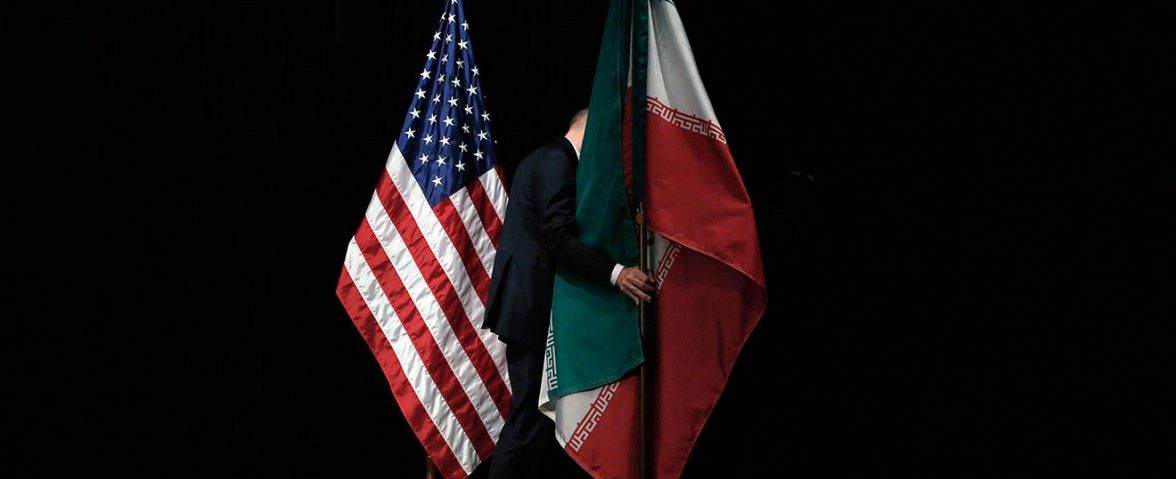American sanctions policy has seen the Iranian issue revitalized over the recent weeks. On May 13th, the President of Iran Hassan Rouhani said that the US unilateral withdrawal from the nuclear deal would not make Iran give up on its commitments if the other five signatory states – Russia, Germany, Great Britain, France and China – remained in compliance with the 2015 Agreement.
According to the Joint Comprehensive Plan of Action (JCPOA), it was not only the UN Security Council and the US who lifted sanctions in 2016, but also the EU. That is why now that Washington has backpedalled, the burden of political settlement lies with Brussels. On May 18th, the European Commission launched a campaign to work out the norms that would ban European companies and law enforcement agencies from abiding by the US exterritorial sanctions imposed on European-Iranian interactions.
American expert community is quite divided over the Iranian issue. Thus, the former CIA Director Michael Hayden believes that Iran observed the international community requirements, hence the deal was effective. He also thinks that the current American President makes decisions that are at odds with the objective reality. In contrast, some experts approve of Trump’s behavior. One of them is Richard Goldberg, the analyst who was behind the anti-Iran sanctions policy being a foreign policy advisor for the Republican senator Mark Kirk. Goldberg’s argument is that the right policy towards Iran must exclude any probability of concessions because it will lead to the “appeasement of aggressor”. That is why the only tool available is maximizing pressure. It is senseless to detach the two objectives: preventing Iran from developing nuclear arms and impeding other foreign policy actions of Tehran that Washington considers illicit. A favorable outcome for the US would be as follows: having realized a real threat of the economic collapse triggered by sanctions, the Iranian regime agrees to fulfill all the US requirements. The analyst believes the approach is beneficial for it is purely economic rather than military.
In practice, renewing sanctions will take the following form. On August 6th, 2018, bans will be imposed on:
– obtaining dollar banknotes by the Iranian Government;
– trading gold and precious metals;
– selling aluminum, steel, coal and industrial software to the country;
– buying carpets and foodstuffs;
– rial transactions with national currency;
– public debt transactions;
– contacts with automobile manufacturing enterprises.
On November 4th, 2018, bans will be further imposed on:
– contacts with Iranian cargo companies, dock services, fuel and energy companies, the Central Bank;
– access to the financial databases;
– insurance services.
Such profound an isolation means minimum trade between Tehran and developed countries. Obviously, the news from the White House immediately resulted in a rial to dollar slump (25%) on the black market. Clearly, this outward indicator does not reflect how acute the problem is. A more serious ground for pessimistic forecasts is that Iran did not managed to augment its safety margins. Although its GDP growth amounted to 12.5% in 2016, in 2017, as estimated, it was only about 4%. For the economic system that has just recovered this growth is hardly significant. The oil prices remained low in the given period. However, Iran has become dependent on neither transnational companies nor foreign suppliers of critical infrastructure components. Aspiring to self-sufficiency is a reference point for Iran.
When speaking about the Western companies’ losses against the backdrop of latest developments, we mean European rather than American institutions in the first place. Signing JCPOA did not add enthusiasm to the American business sector, and it participated in sharing the Iranian markets reluctantly. There were only two American companies who took the risk – Boeing (aircraft supply order that amounts to $20 billion) and General Electric (energy sector facilities supply order). Both of these contracts are automatically annulled in the current state of affairs.
Many more important European companies are present in the region: Total, Airbus, Peugeot, Volkswagen, Siemens, Maersk, etc. It is pointless for these TNCs with extensive business interests in North America to succumb to sanctions for they are highly susceptible to the influence of American regulatory agencies. Thus, it comes as no surprise that some of them have already announced the wrap up of their activity in the Islamic Republic. To illustrate, this is Total that has a joint share with Chinese partner in a gas mining project in South Pars and a Danish shipping company Maersk, one of the largest container shipping companies in the word. However, small & medium enterprises can still try and stay in Iran. The EU plans to grant these firms immunity to American restrictions. They will be compensated losses and offered financial assistance through the European Investment Bank.
At an institutional level, Europe will show its resolve to resist the US voluntarism if it refuses to switch Iran off the global financial transactions system (SWIFT) based in Belgium. In absence of this, the American sanctions regime will not be fully effective. Nevertheless, what really counts is supporting the Iranian fuel and energy sector. The core vulnerability of Iran is oil trade, so cooperation with single Europe on this matter is vital.
In a previous round of sanctions the US and its European allies managed to knock down the Iranian exports by 60%, which led to losing $160 million in profit. Now that Europe has announced its commitment to establish communication with the Iranian Central Bank to pay for oil supplies without commercial banks’ mediation, it seems to be in line not with the US but with Iran.
Generally, it needs to be said that another attempt by the US to economically isolate Iran increases the odds of escalation for the entire spectrum of Middle East issues and leads to undermines positive dynamic in the future. An inevitable implication of such policies is weaker commitment to diplomatic procedures while solving fundamental regional conflicts worldwide.












